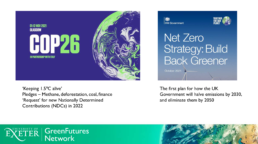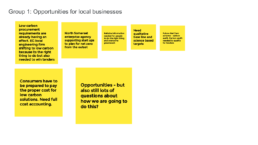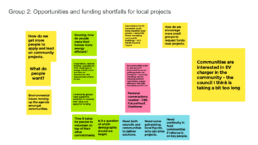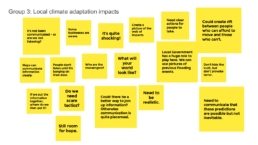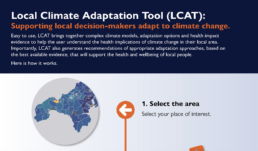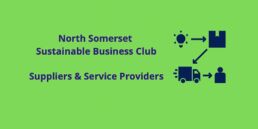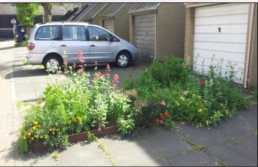How can the outcomes of COP26 support the carbon neutral ambitions of businesses, policy makers and communities in North Somerset?
On Thursday 25th November 2021, twelve days after the close of COP26 in Glasgow, Burnham & Weston Energy and the University of Exeter’s Green Futures Network collaborated with North Somerset Council to deliver ‘COP26: what does it mean to North Somerset?’
The aim was to explore the outcomes of COP26 and to understand the opportunities decisions made at a global level give us to act on climate change locally.
What was COP26?
Many people believed that COP26 was ‘the world’s best last chance to get runaway climate change under control’. UK leaders came together in Glasgow with leaders from across the globe. Their hope was to ‘acclerate collaboration between governments, businesses and civil society to deliver on our climate goals faster’.
Increasingly, this became a focus on ‘keeping 1.5 alive‘ – we have a less than one per cent chance of keeping temperatures within the 1.5 degrees centigrade target set by the 2015 Paris Agreement (agreed at COP25) should we maintain our current emissions trajectory.
What did we achieve at ‘COP26: what does it mean for North Somerset?’
With the input of the University of Exeter and an engaging panel of experts, campaigners and policymakers, the event steered participants through:
- The trends to emerge from COP26
- The learnings from the conference that can accelerate our progress towards net zero
- Identifying questions that we need to address so that we can work better together to achieve our local 2030 carbon neutral ambition
Nearly 50 people registered to take part, and the event welcomed policy makers and local authority officers from across North Somerset, public and private sector organisations including businesses, health, finance and education), community organisations and conscious citizens. Following a presentation on the outcome of COP26 and a Panel discussion, participants joined breakout discussions to look at the opportunities for businesses, funding shortfalls for local projects, and local climate adaptation impacts in greater depth.
Key themes to arise from ‘COP26: what does it mean for North Somerset?’
A full overview of the event, including recordings of the Panel discussion and outcome of the breakout discussions can be found later in this report. However, some prominent themes from the Panel and breakout discussions included:
- We have the knowledge to make the changes needed and positive action is being taken by businesses and communities across the county
- However, we need to be great at sharing ideas, resources and tools, and be much better at facilitating projects, even smaller ones, to be successful in climate mitigation and adaptation
- Diverse knowledge and networks across the public sector, our universities, with communities, should be connected in order to deliver projects together
- People do want to understand what they need to do – clear communication from those with the knowledge and support to help people understand is important
Outcomes and trends from COP26 – led by Peter Lefort, University of Exeter Green Futures Network
Drawing on the views of University of Exeter academics who also attended COP26, Peter Lefort opened ‘COP26: what does it mean for North Somerset?’ with an overview of the outcomes from the conference and the government’s Net Zero Strategy, opportunities and trends emerging for local climate actions plan, and the direct and indirect impact on the area.
In establishing a platform for the discussions, Peter highlighted considerations and questions important for North Somerset to take on board should people in the district want to succeed in realising their net zero objectives including:
- There is a need for behaviour change, but with no national strategic approach, this is likely to fall to a local level
- Evidence suggests there is support from the public for stricter rules and environmental regulations
- As pressure to address climate change mounts, we need to be aware of blaming others for lack of action and the social effect of this
- Do we have the tools and resources locally to help businesses get on board with the trend for being transparent with their impact and progress towards targets? Can we recognise and celebrate businesses who do this? What leadership do we need locally to support this?
- In the UK, there is still a need for an agriculture emissions strategy, a clearer plan for Power, and clarity on what’s going to happen with larger transport and motorbikes
- Locally, we’re developing a better understanding of what climate change means to us, and now we need to make changes to the way in which we grow and transport food, travel, power our homes and businesses etc
The opportunities include supporting businesses so they can quickly respond to the changes they need to make and focusing on behaviour change. Peter also noted the importance of maintaining the drive to realise the local net zero ambitions, encouraging communities, businesses and local authorities to tap into the resource that academics in universities in the UK and abroad can offer.
“Change can happen very quickly, once the conditions are right. Let’s keep pushing forward and claim the victories as they come. Let’s think of resilience in a new way – how do we adapt to the changes we know are going to come? Tap into academic knowledge about what is going to happen locally and what we need to do. We need to act now, because the changes coming are inevitable…the more we can prepare for them and look forward, the better prepared we are going to be.”
COP26: what does it mean for North Somerset? – Panel response
A diverse Panel was then called upon to respond to the outcomes of COP26 highlighted by the University of Exeter. Specifically, Panel members were asked to speak to:
- The work of their organisation and what has been done to date
- The outcomes from COP26 and which ones feel most important to them at a local level
- The gaps in our knowledge and capacity that are most important to address
Their presentations provided an opportunity to further consider the local impact and opportunities to integrate learnings into local strategies, plans and actions, and our local capacity to address climate change. Some stand out takeaways from their presentations included (find the full YouTube recording of the presentations below):
Councillor Bridget Petty, Cabinet Member for Climate Emergy, North Somerset Council
North Somerset Council has areas of influence beyond our footprint and need to show leadership. To help others around us make changes that affect us and our descendents, we have, and can access greater, knowledge, and work in partnership nationally and locally. Measures implemented include an SME business network, staff training, investing in EV charging, active travel and working on ambitious bus strategy. However, failure to address climate change will effect the vulnerable first. There are gaps in our capacity to deliver necessary measures such as retrofit, renewable energy, climate adaptation – at the pace needed, lack of finance and mandate. Click here to view Councillor Petty’s slides
Joel Kirby, Energy and Sustainability Manager, University Hospitals Bristol and Weston NHS Foundation Trust
COP26 has driven more people to share their ideas and get involved in climate change. The fact climate change effects people’s health is also a big driver. The local NHS Sustainability Strategy has reduced direct emissions associated with heating and energy use. Challenges remain in electrifying our estate (available electricity supply locally) and managing anaesthetic gases. Electrifying our fleet will help improve air quality. Indirect emissions is now where greatest emissions lie and suppliers will have to decarbonise at the same rate. Click here to view Joel Kirby’s slides.
Jon Rattenbury, Programme Manager for South West Energy Hub
Lack of resources, knowhow and finance hinder the ability of the public sector to move projects forward and for community organisations to deliver bottom up action. SWEH supports a range of organisations to enable a variety of solutions that reduce energy costs of properties and secure funding. However, challenges remain in integrated energy planning that maximises efficiency and socio-economic benefits, and brings scale to attract finance. Placebased solutions are looking at multi technologies and planning to generate more renewable electricty. However, there are also challenges in North Somerset grid capacity and addressing needs of local housing archetypes and energy needs.
Jamie Kingscott, North Somerset Rewilding Champions Project Manager, Avon Wildlife Trust
Nature’s recovery, empowering people and nature-based solutions are three priority areas for Avon Wildlife Trust. Climate change will impact all species, so the healthier living landscape improves resilience and delivers natural climate solutions through habitats that also store carbon. The plan includes rewilding 25% of council’s amenity grassland, creating and conncting habitats, and boosting biodiversity. There is also a need for engaging communities to proliferate change – and bringing 25% of local people on board is a tipping point that will help embed the behaviour change needed. Acceptance of issues is in place, people are aware and they care. It is important to act locally, now.
Watch the presentations from the University of Exeter and the Panel
The recording of the presentations made by the University of Exeter and the Panel members, also incorporates the Panel’s reflections their key takeaways from the event. It can be viewed here:
The opportunities post-COP26 – breakout discussions
Following the Panel presentations, participants chose which of the three breakout rooms to join in order to develop the discussion. Here the notes captured on Google Jamboard are shared along with an interpretation of the key messages arising from each of the discussions.
Click each image to view it full-size or here to view the entire Jamboard.
1. Opportunities for local businesses
An understanding of baseline emissions and science based targets could underpin reliable carbon accounting for businesses. Some are already winning tenders by demonstrating lower carbon emissions. However, associated costs and how to reduce emissions is still a challenge for many businesses.
2. Opportunities and funding shortfalls for local projects
Highlighted were the challenges community groups may have in establishing and developing their idea prior to applying for funding. While environmental issues are moing up the agenda amongst communities, information and support is needed, and there is opportunity for solutions to be delivered jointly by councils and NHS with communities.
3. Local climate adaptation impacts
Discussion centre around how, where and with whom the impact of climate change should be communicated in order to promote behaviour change. Whether messages must be stronger, more joined up, and use visual tools was explored, as was the potential to create division between people able-to-pay and those not-able-to-pay to implement adaptation solutions.
Summary – panel reflections
As the event drew to a close, the Panel members were asked for their reflections and what they were going to takeaway from the conversations. This is captured in the YouTube recording above, but in summary:
Climate change is much higher on people’s agendas now, and people are already doing great things to address climate change. Now there is a consensus that we do need to focus more on behaviour change. That we can tip the balance towards the behaviour change needed through winning over 25% of people is a good takeaway.
However, the impact of climate change and the realities we are facing must be much better, but carefully, communicated. Good communication, too, is necessary to help people fully understand the opportunities available to them – people are keen to know what they can do.
Organisations are keen to engage with those in other sectors. We do want to work together more with the universities, and we need more community engagement for projects including those delivered by public sector organisations. Smaller renewable energy projects are viable so we need to look at this for North Somerset.
There are opportunities as well to reflect on how experience during covid showed that people were happy to get back to nature and realised this was precious to them. The natural environment remainsa great pull for local residents.
Resources
Some great resources were shared in the discussions and Chat during the event. Here are the highlights:
Conclusions
As outlined in the key themes above, participants in the event highlighted next steps available to us out of a toolbox with which we are already familiar:
Working better, smarter and more innovatively together
Collectively we have the knowledge needed to put in place solutions to reduce carbon emissions and adapt to impacts of climate change that we cannot avoid. And we can be reassured this means that action is already being taken. However, to respond at the scale, speed and depth needed, we must make more of our opportunity to work with universities, enable community-based organsiations to collaborate with the public sector and others, and connect with our natural environment. Working together across the community from public sector to local groups could help deliver the economies of scale, the impact required, and co-benefits that include improvements in people’s health, sooner.
Communication
Ensuring people and organisations find and access the available support, knowledge and experience, to help the delivery of projects, pool resources and scale impact is key. Success here could break down a big barrier faced by community and other organisations when developing their projects and securing funding. We must be better at sharing ideas, resources and tools to facilitate projects small and large.
How and what we communicate is also a big factor in enabling people to make the changes we need to reduce and adapt to the impact of climate change. However, we need to understand what messages we need to communicate and from where these messages are communicated to enable people’s understanding of what action they need to take.
Behaviour change
People do care and want to do things differently. If we can support 25% of local people to change the way they do things so that they positively impact on their communities and the environment, it is anticipated that we will reach a tipping point. It will be easier for others to postively change their behaviours as people learn from those around them.
Take action now
How we galvanise and share the stories of those already taking action is one question that still needs answering. However, one thing we must all do is take action now. Change can be delivered at a local level and potentially sooner than if we were to wait for it to be enabling centrally.
In fact, with the local net zero target of 2030 just eight years away, successful adoption of these next steps now is likely to deliver the greatest benefits to the residents and businesses of North Somerset. A delay will likely mean a rise in costs not only financially and environmentally, but socially too with the most vulnerable in our communities the first to be affected by negative changes to their health, homes, and the community in which they live.
Message from Burnham & Weston Energy, University of Exeter and North Somerset Council
A key theme was the need to share networks, ideas and resources. You can make sure to stay in touch with Burnham & Weston Energy here and the Green Futures Network here. Make sure to reach out to your networks and beyond for support – the community groups, the businesses, the universities, the local authorities, the NHS – where collective action would bring co-benefits. People and organisations are very keen to work together!
Finally, go out and take action. We can take reassurance from the event that people are positive that here in Sedgemoor we are capable of delivering change together. This gives us permission to go ahead, and whether realised through small or big projects, the action we take can make a significant positive difference to our health, livelihoods and the environment in the hamlets, villages and towns where we live and work.
